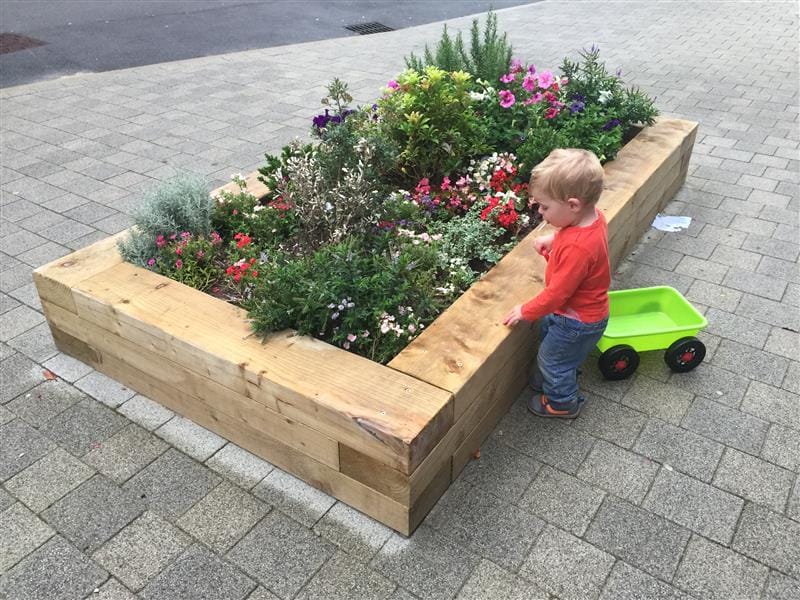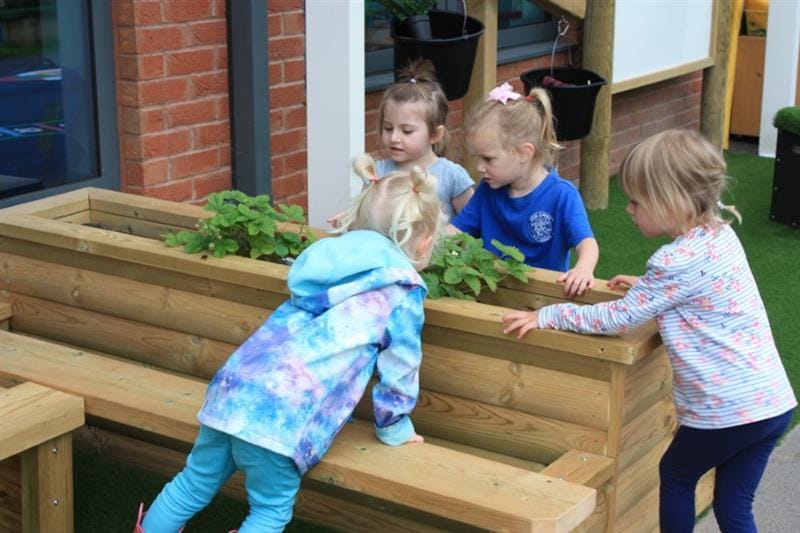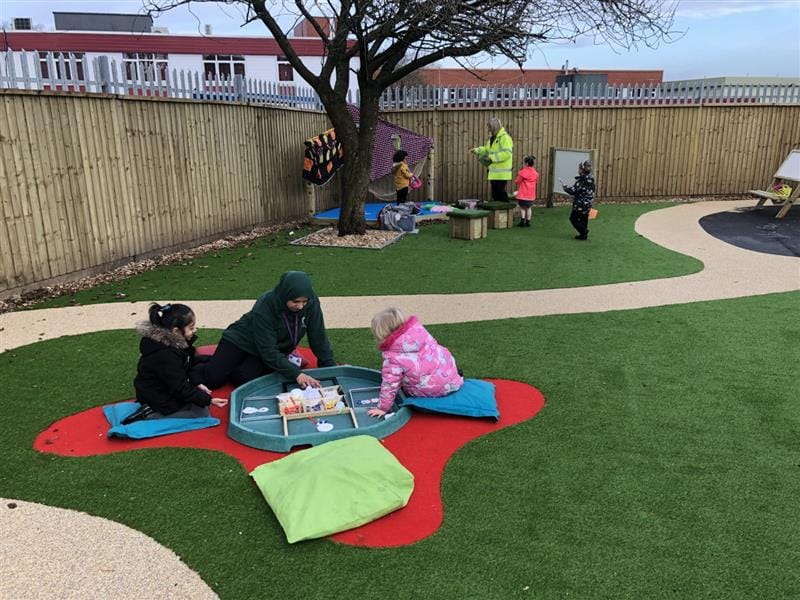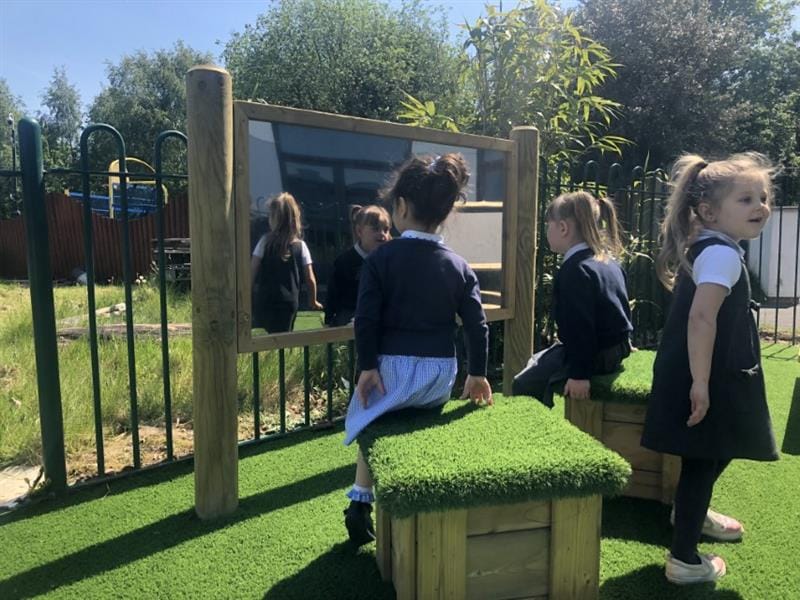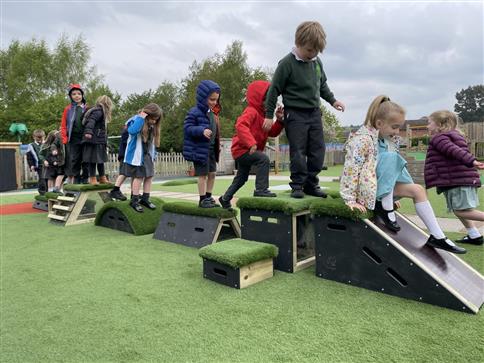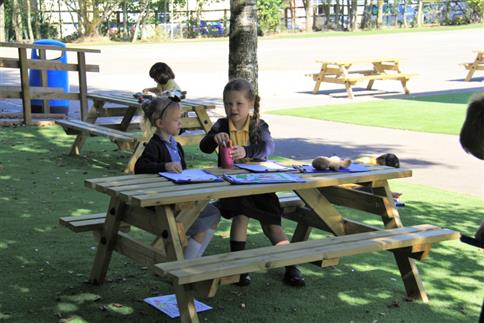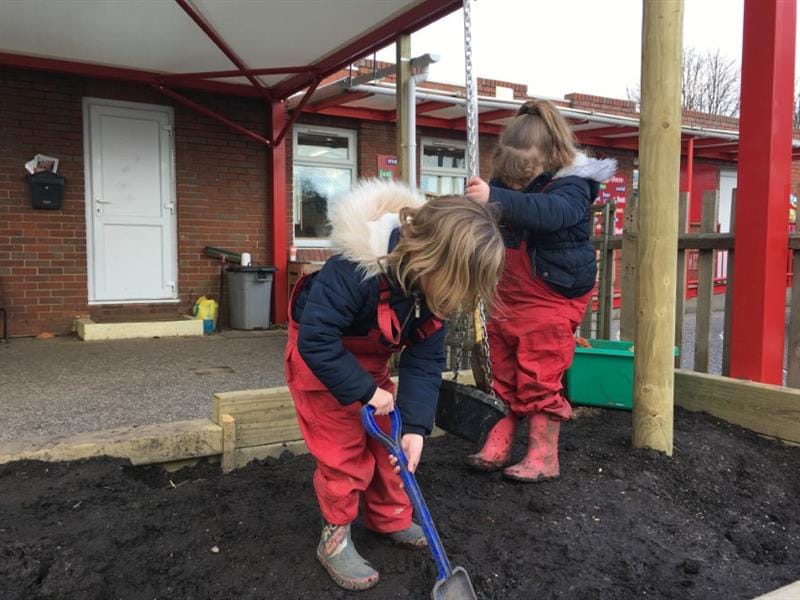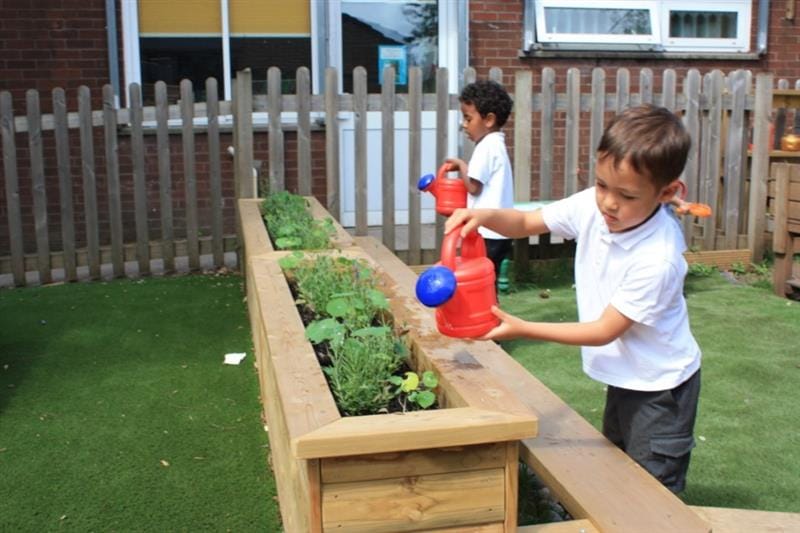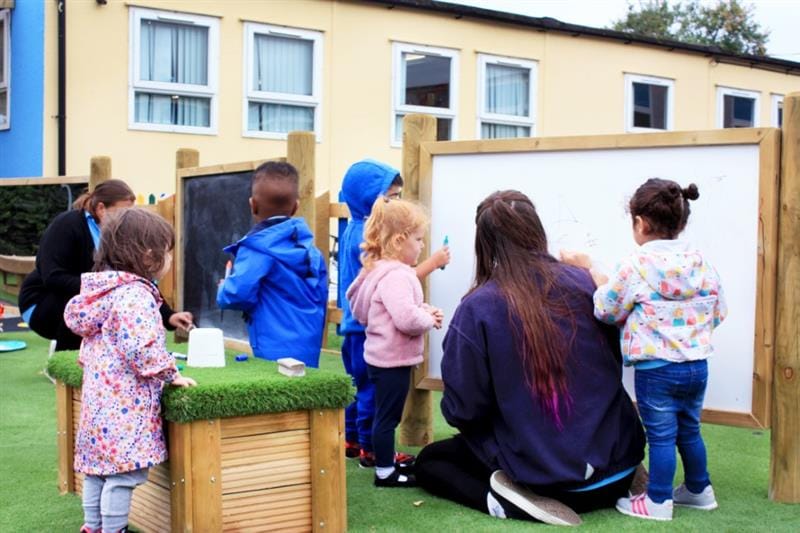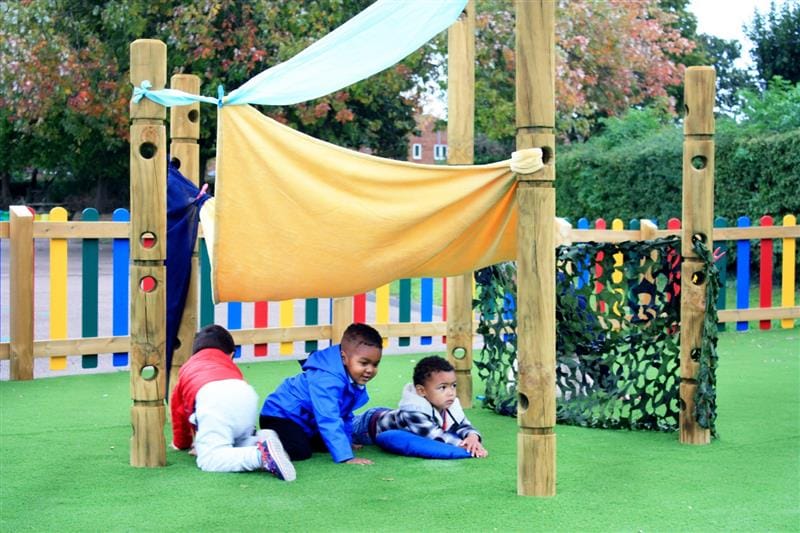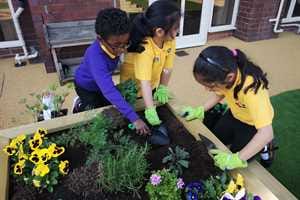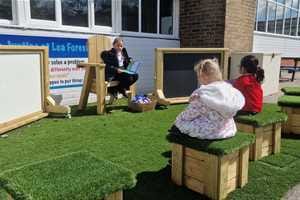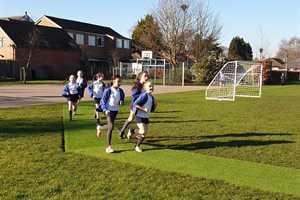
Outdoor Learning and Play
Instilling Outdoor Play into your child's life from an early age!
Infants and toddlers can benefit greatly from being outdoors. Fresh air, sunshine, open space to crawl and roam around and exposure to nature provides opportunities for children to learn and grow.
During the first three years of life brain synapses form at a rapid rate. A stimulating, sensory environment can help children to understand and make sense of the world around them.
This blog will explore ways to introduce infants and toddlers in nursery and preschool settings to spending regular time outdoors.
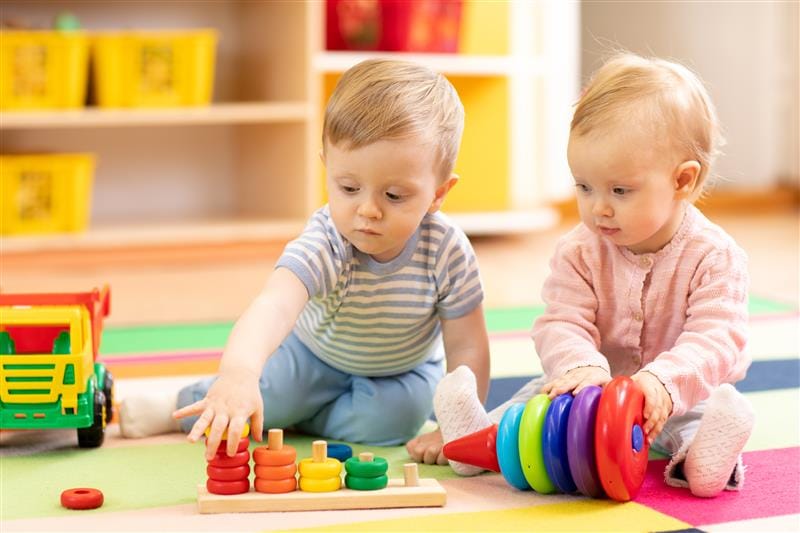
A Rich Sensory Experience for Infants
Infants require frequent access to a varied environment and spending time outdoors can provide a rich sensory experience. An outdoor space includes many different textures, colours, smells and sounds which stimulates the senses whilst also providing a sense of calm.
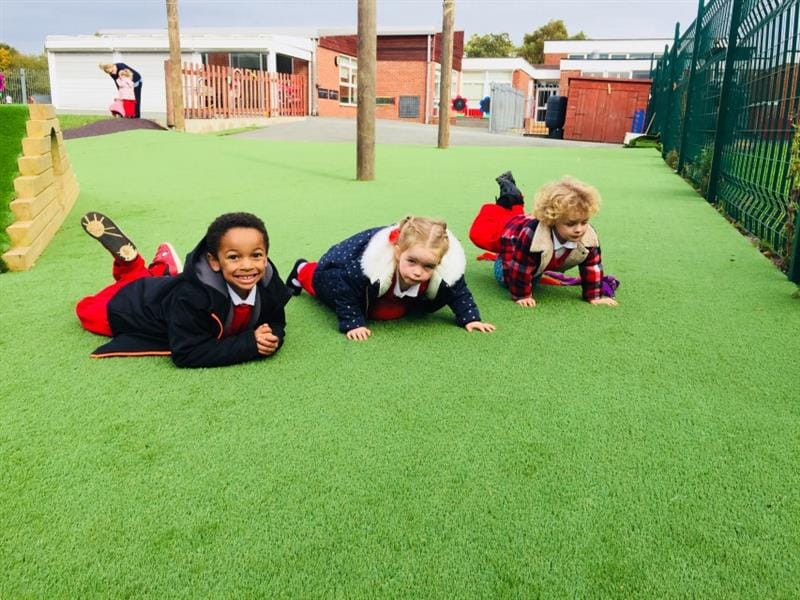
Infants benefit from being carried for outdoor walks They enjoy listening to the sounds of birds or trickling water, noticing how the lavender smells and touching the crunchy leaves whilst feeling closeness and comfort from their caregiver.
When babies are carried while moving, they are placed in different positions which encourages a healthy sense of movement, muscles are strengthened and different gravitational forces are experienced.
There is a vast array of natural phenomena for babies to watch and observe outdoors. As they stare at colourful flowers, they learn how to control their eyes and track objects such as falling leaves or blossom.
Babies are more receptive to outdoor sounds and changes in light which help to stimulate eye and brain development. Listening to noises in nature allows infants to respond by turning their eyes or head and reacting excitedly.
Wind chimes complement natural sounds and can be made and hung, offering babies an interesting source to focus on.
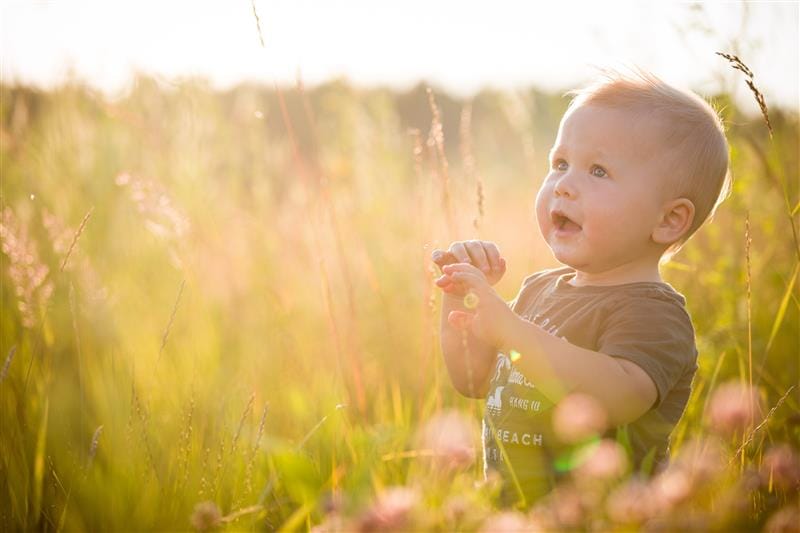
Every season brings changes in temperature and different smells which provides us with opportunities for infants to explore different sensations and stimuli.
Babies will notice the change of temperature on their skin, the breeze in their face and the different smells of the changing trees and flowers allowing them to experience multiple sensations at once.
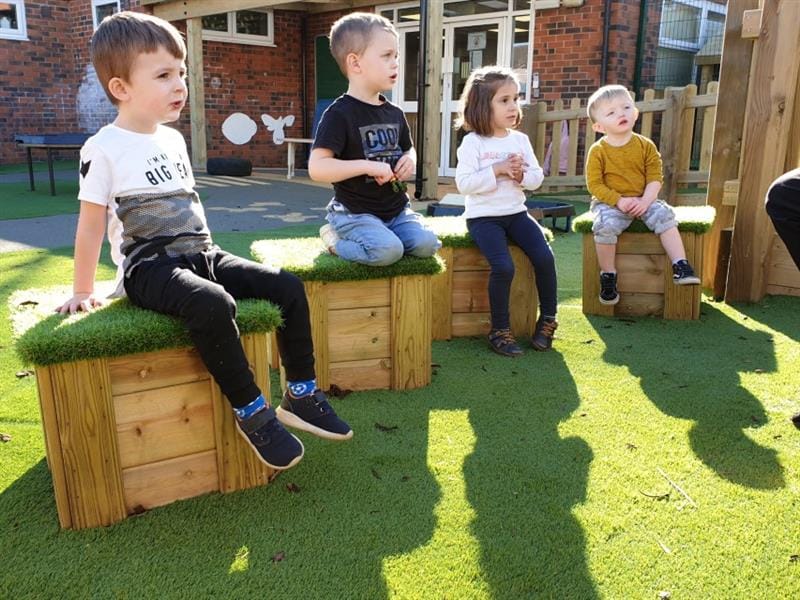
When infants are carried in the outdoor environment, practitioners can narrate what they can see, feel, hear and touch, reacting to babies sounds and gestures. This can have a positive impact on early language and cognitive development. Babies will enjoy feeling the rough bark, grabbing the leaf and feeling the damp grass on their toes.
I am a firm believer in the saying ‘fresh air is good for babies’ and encouraged my children to take naps outdoors. Babies who sleep outdoors experience the calming effects of nature and can often sleep for longer.
Allowing children to nap outside is popular in Scandinavian countries as many believe it is beneficial for infants to spend less time in dry, recycled air which can allow viruses and common colds to easily spread.
More time for ‘Floor Time’
Time spent playing freely on the floor is essential for babies to develop strength in a wide range of muscles in the arms, legs, back and core. Floor play provides infants with unrestricted time to move and discover their bodies. Babies learn to push against the ground, developing proprioceptive sense and spatial awareness.
Placing babies on the ground in the outdoor environment can be a lovely, sensory experience. As infants lie on the blanket practitioners can point out moving leaves and talk about the different sounds that can be heard within nature. Babies will enjoy reaching for blades of grass and letting their hands brush across the ground.
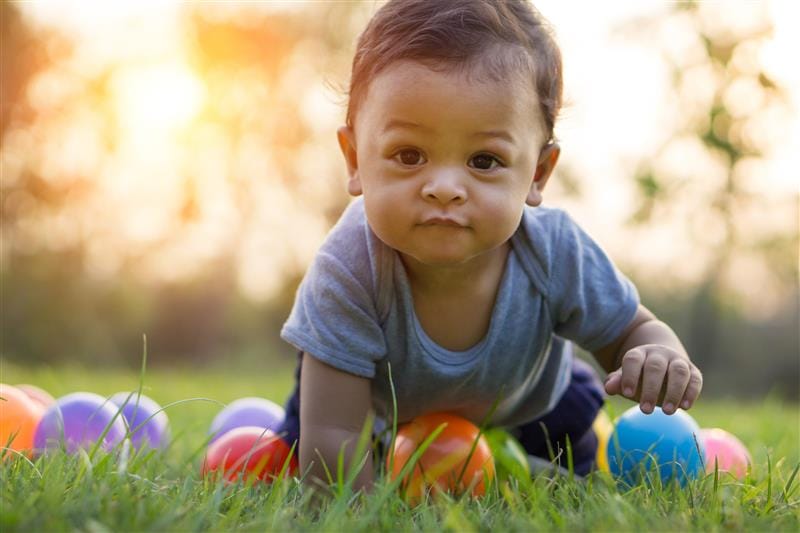
Tummy time gives babies a different view of the world which is important for physical development. Back, arm and neck muscles are strengthened as babies turn their heads to watch bugs and flying birds or notice the changing colours in the sky. A mirror is a lovely resource to take outside which encourages infants to interact with the outdoor environment, developing gross motor and sensory skills.
On the Move!
As babies grow, they begin to learn to move in new and different ways. Infants show independence when crawling on their hands and knees to explore their surroundings.
Outdoor terrain offers many challenges for moving infants. In contrast to the smooth, level surface of indoor environments babies will need to adapt to hard/soft surfaces where conditions can be warm or cold and the ground can slope and dip. Babies begin to develop balance, stability and coordination by conquering slippery mud, wet grass, wood chip, sand and woodland floor.
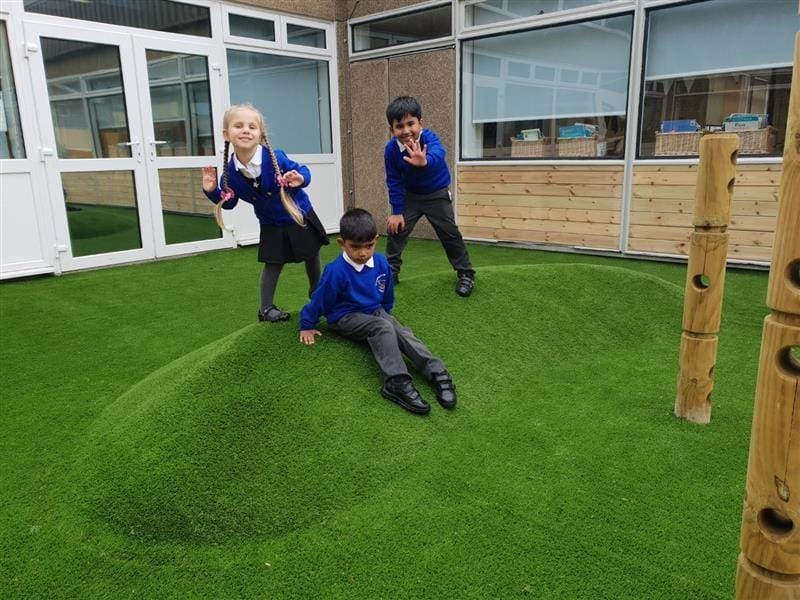
Playground mounds and tunnels allow babies to practise moving over uneven terrain whilst experiencing changing environmental factors. Over time, movements will become more refined as balance and coordination improve.
Get Set, Go! Blocks can create the perfect obstacle course for toddlers to explore. The resource requires toddlers to place weight on different parts of their body, creating strong bones and muscles and also helps infants to pull themselves up to a standing position.
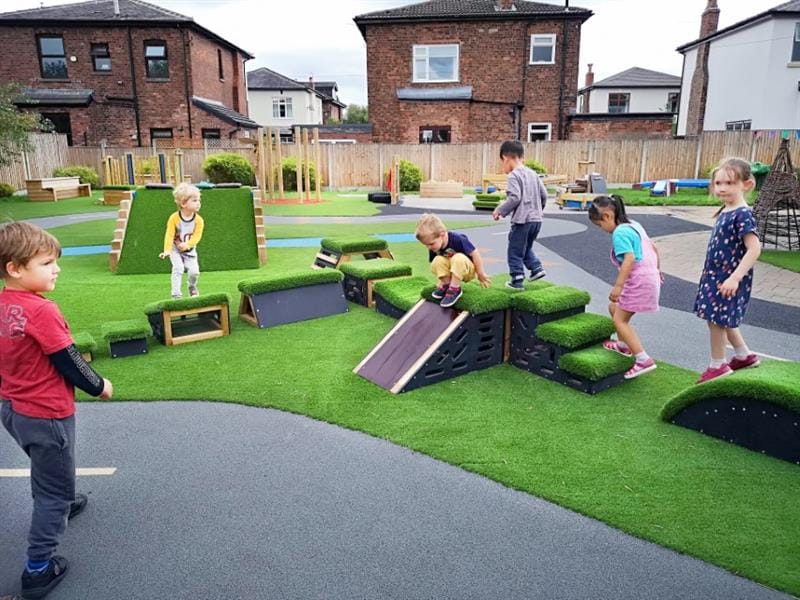
Wheeled toys are loved by children and can be beneficial for toddlers learning to walk as they help to push teddy in the cart! Controlling a wheeled toy helps children to develop a sense of balance and spatial awareness whilst supporting collaboration with peers.
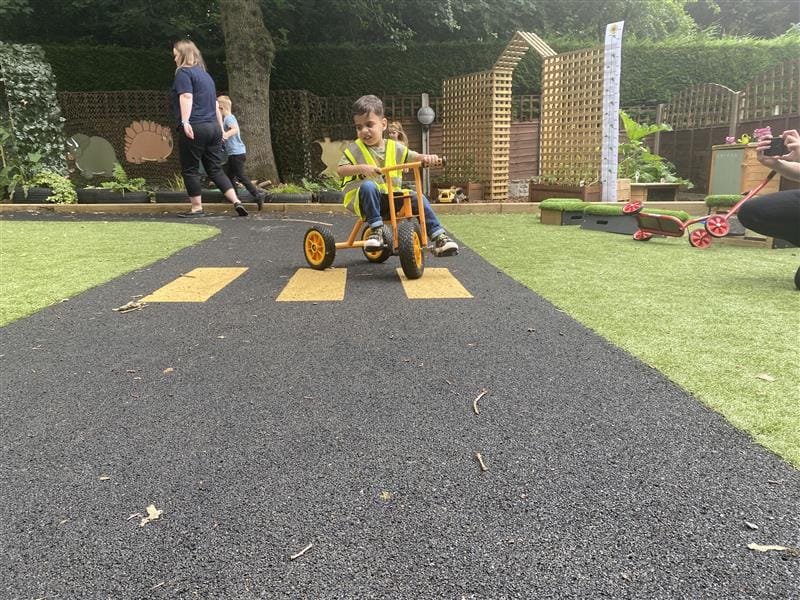
A Pentagon Racetrack can weave seamlessly through an outdoor area, providing a dedicated space for wheeled toys but also ensuring other types of play can take place in areas around the track. Young children can begin to learn essential road safety skills when riding on the track, taking note of road signs and respecting each other’s movements.
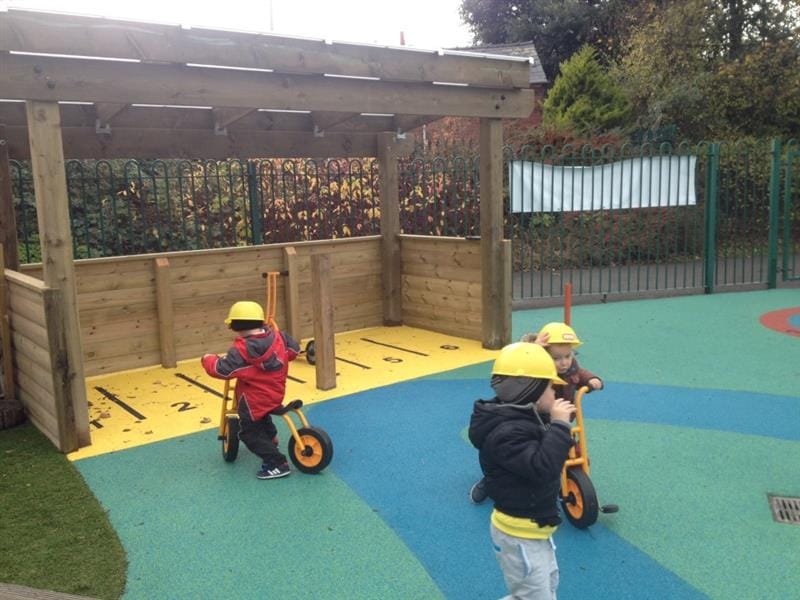
Sensory Play
Toddlers enjoy learning through hands -on, practical play by exploring all of their senses. An outdoor Tuff Spot Table can create a perfect ‘sensory bin’ for plenty of messy fun! When exploring coloured rice, children learn to scoop, pour and transfer which helps them to develop life skills when using a spoon and pouring from a jug. Pieces of fruit added to water can introduce early maths skills as children practise counting, discuss capacity and begin to estimate.
Product Spotlight
Toddlers often become highly engaged with sensory play as they are free to imagine and determine their tasks. When given some playdough, young learners may decide to make biscuits, people or experiment with loose parts. Whilst moving their fingers in play, toddlers are developing coordination, grip and finger isolation.
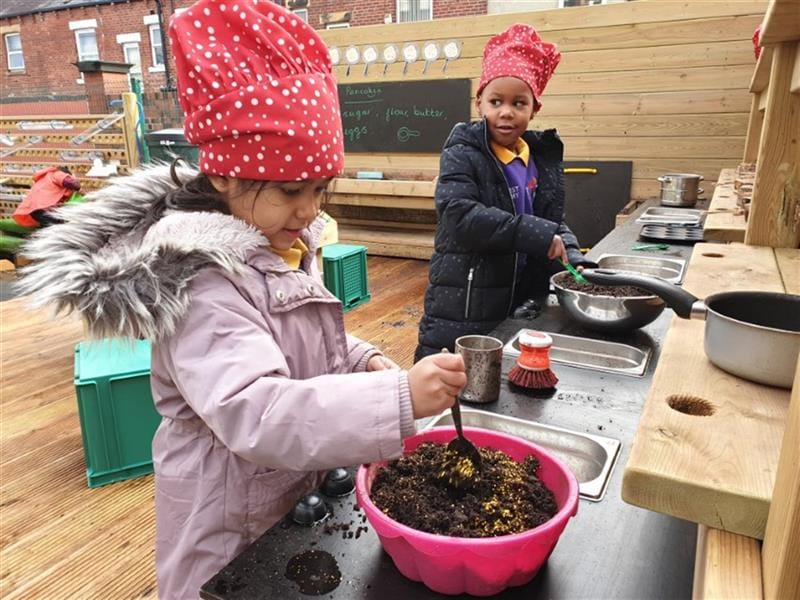
There is nothing that toddlers like more that playing in a Mud Kitchen! Young children can creatively explore and express themselves when given time and freedom to play with mud. Toddlers will develop language skills as they practise what they have learned and observed, allowing them to make ‘real-life’ connections.
An outdoor Mud Kitchen allows young children to experience different natural elements such as sun, rain, wind, light and sounds within nature. Exploring a variety of utensils allows toddlers to measure, pour and mix which greatly improves fine motor skills.
When playing outside children are naturally exposed to the bacteria, germs and microbes around them. Toddlers love to dig in the mud, search for worms, jump in muddy puddles and roll down hills. This natural behaviour is believed to help children to strengthen their immune systems, providing protection against the development of allergies and asthma.
Gardening with small children offers many sensory benefits. They will be able to dig a hole in the compost, pour from a watering can and explore the tastes and textures of foods that are grown. A Planter Bench allows toddlers to smell herbs and flowers whilst observing birds and insects as they learn to observe what they can see and hear all around them.
Experience the Elements
Should we let toddlers play in the rain? If children have the right clothing, there is so much fun to be had when playing in the rain. Feeling warm and gentle rainfall and watching how puddles form can offer wonderful sensations for babies and toddlers to explore.
By playing in different types of weather, children build a strong connection to nature and a wet environment brings a new set of slippery challenges which strengthen children’s motor skills and balance. Puddle jumping and dancing in the rain provides a fantastic whole-body experience and toddlers will enjoy playing with toys and floating boats in puddles.
Having snack and mealtimes outdoors can be an enjoyable, calming experience for toddlers as they enjoy new sights and sounds and observe wildlife around them. It can be an inviting, happy experience when children eat outside as opposed to inside where the clanking of cutlery and loud voices seems to be more noticeable.
Pentagon Play can help to create a shaded area with picnic tables for children to share meals together, which would also allow production of essential vitamin D. Eating outside may encourage toddlers to engage in conversations, developing language skills and understanding facial expressions and gestures.
Taking Risks
Babies and toddlers need daily opportunities to challenge their bodies and take risks. Jumping from the Hill Climber, crawling through the tunnel and observing animals at the pond allows children to understand their bodies and make sense of the world around them.
Practitioners can encourage babies and toddlers to try new things in order to gain independence whilst remaining present and offering reassurance.
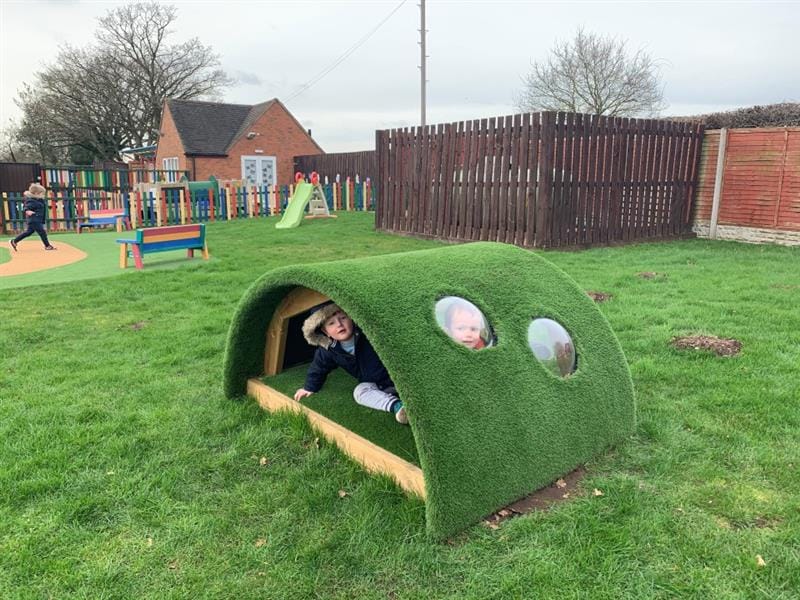
When children are given plenty of time to play, they become more active and body confident. It is always wise to follow a child’s lead instead of placing them on equipment or in situations if they have not developed the strength and body awareness to complete a task without falling or risk of serious injury.
Even from a young age, children can be educated about what could be harmful in the outdoor environment, just as we explain not to touch certain items indoors. Accidents such as falling over or slipping can actually help children in learning how to keep themselves safe.
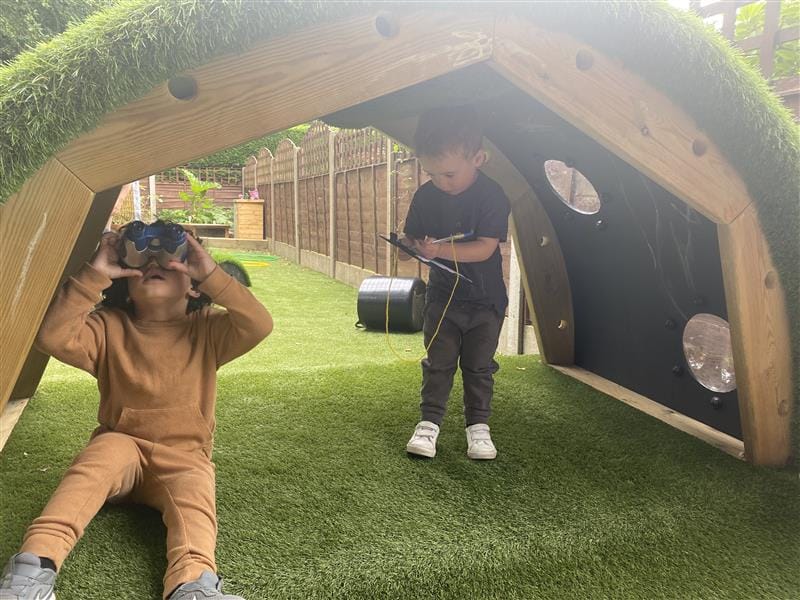
If we talk to children about what happened and discuss what could be done differently next time, they are able to recognise and deal with accidents whilst learning to regulate their emotions.
During the first few years of life, children make rapid neurological connections and use all of their senses to create meaning. Spending time outside gives young children freedom to explore and to become absorbed in meaningful, active play.
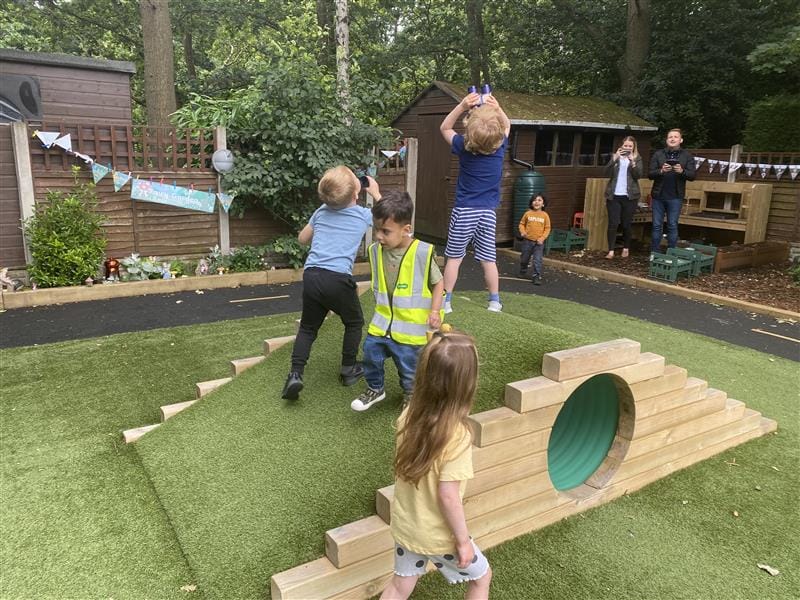
Toddlers learn well through movement and they may be more willing to talk and join in with activities outside. NHS guidelines state that children under 5 should be physically active for three hours each day.
In the outdoor environment children are given space to walk, hop, dig and swing which provides daily vigorous exercise. We shouldn’t wait until children are older to let them explore the outdoors and take risks, we should encourage them to explore their surroundings and experience nature to equip them for life and future learning.
.JPG)
